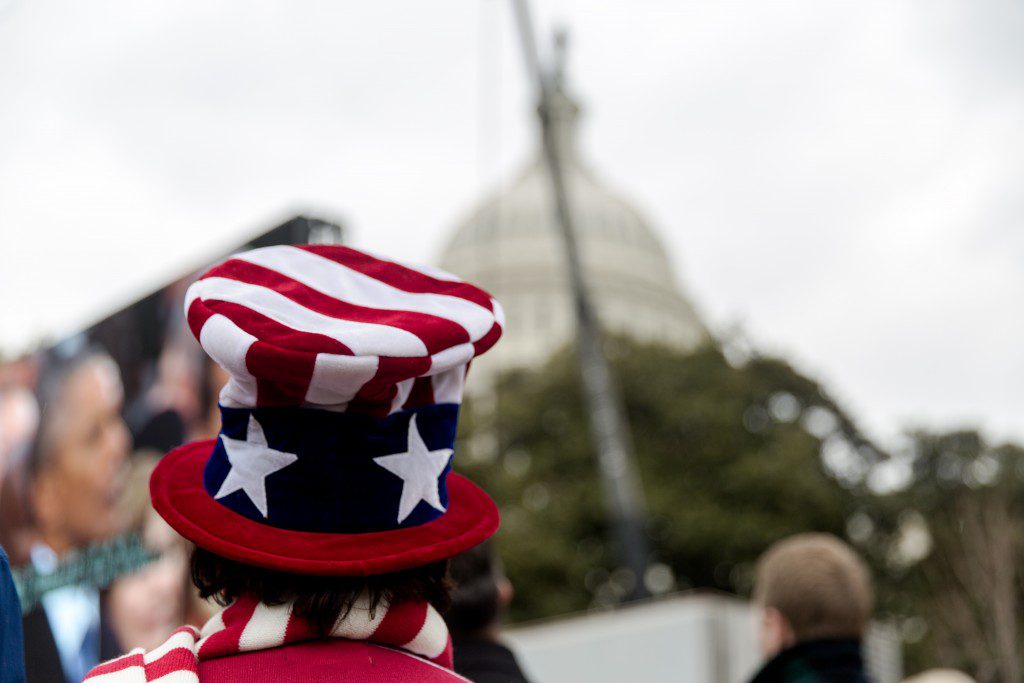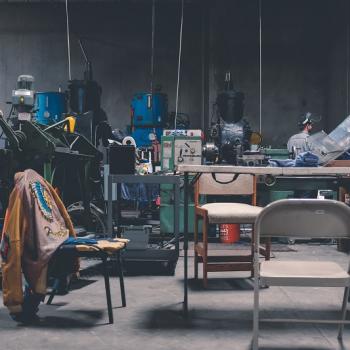
Donald Trump may be a different kind of leader, perhaps even a threat to our democracy, but that doesn’t change the nature of the pastoral vocation, says an Iowa pastor. The pastor is the keeper of a space where we stand on a firm foundation. Reprinted from Faith & Leadership.
By Cameron Barr
At first, I was a little annoyed that I had heard about it only indirectly. This member and I have had many long conversations about climate change, and we’ve always had a strong relationship. Did she really think I don’t care about the planet?
And besides, what did she expect at the church-house door? The receiving line is for hearing compliments on my sermon, chatting awkwardly with first-time visitors and patting children on the head. It’s not the best setting for sustained discourse about the Paris Agreement.
Still, I hadn’t seen her in church in several weeks. Wondering whether something else might be going on with her, I called, and we agreed to have lunch shortly after New Year’s.
When I met my parishioner at the restaurant, she welcomed me warmly to the table. She was grateful that I’d reached out to her, and she rushed to explain herself.
“I was so depressed by the results of the election that I didn’t come to church for six weeks,” she said.
“I know that wasn’t a particularly logical response,” she added, “but I was living with the outrageous expectation that you would have an answer to all of this.”
I thanked her for cutting me some slack and told her about the pressure I often feel to help our congregation interpret political developments in light of our faith. We agreed that all Christians look to the church to find meaning and purpose. But nobody — at least in our congregation — ultimately expects the pastor to be the kind of sage who can explain every bewildering world event. As she and I talked, I realized once again that we are all trying to navigate this swamp together.
The news these days is moving very fast. President Trump issued 20 executive actions in his first 10 days in office. Virtually each of them deserved its own front-page story. Every day, we live with the unsettling awareness that Trump is unlike any previous president. He willfully disrupts international alliances. He’s surrounded by dark ideological extremists. He governs just like he campaigned: anything to keep our attention. We can’t avert our gaze, because we need to know what’s coming next.
Yet in the midst of all this change and upheaval, pastors find themselves in a very familiar position. People are looking to us for answers that we don’t have. They are asking for assurances that we can’t make. And they are projecting onto us desires that we can’t fulfill. Trump may be a very different kind of leader for our country, perhaps even a fundamental threat to our democracy, but nothing about that changes the nature of the pastoral vocation.
Pulpit and pew always form the base of a triangle, with God at its center. Together, pastor and parishioner search for God. Sometimes the third angle is taken by specific challenges or experiences, perhaps grief or a family conflict. People come to church hoping that faith can help them resolve their deepest questions and struggles.
These days, many of us are struggling with the consequences of the November election. As Trump fitfully reveals the kind of leader he will be, people of faith are contemplating what it means to love God and neighbor. Many Christians are wrestling with a great question: “How do I resist?”
Like so many good questions about life and death, it’s a question that puts pastors on the spot. It forces us to decide, how do we become spiritual leaders in the resistance?
The policy questions are the easiest to answer. Of course immigrants need our support. Refugees need our hospitality. We believe in constitutional protections for LGBTQ people. Climate change is real — and an appropriate response will require changes in both individual behavior and public policy. Here, the pastor’s task is to stimulate the moral courage of those who already know what the gospel asks of us.
But people are also grappling with existential questions. When Trump was elected, our community went into grief. For weeks, I listened to the lamentations:
“What does this mean?”
“How did we get this wrong?”
“What will we do?”
In all honesty, I don’t know.
But I’ve heard these questions before. They are the oldest questions of Israel.
It’s tempting to offer pithy and perfunctory answers by, say, reposting Facebook memes. It would also be easy to preach a loud and forceful sermon. That would feel good. And lots of people would nod their heads and say nice things in the receiving line.
But answers aren’t the only things people look to their pastors for. Where I can’t provide answers, I can offer care. Any attempt by me to give all-encompassing answers risks cutting off the earnest searching of others. I could weigh in with my own informed opinions. But I could also choose to listen and wait in the hope that I might establish a deeper connection with the questioners.
In a world that seems more tumultuous every day, I am the keeper of a space where we stand on a firm foundation.
People look to the pastor for answers precisely because they’ve been searching within themselves. Good preaching has a way of drawing out the inner strength that people of faith already have.
Since the election, I, like many others, have been organizing and marching. But for me, Christian resistance also means investing more fully in my vocation. These days I’m not preaching just about politics, though that’s on everyone’s mind. I’m preaching about the gospel, in order to sharpen our focus on our values. I trust that the way of Jesus is deeply subversive.
As it happens, my parishioners don’t need me to tell them how to express their faith. They are doing it well without detailed instructions from me.
Dozens of members of our church drove 50 miles from Grinnell to Des Moines to join the Women’s March. When the local coffee shop was too small for a community organizing event, a member of our church brought everyone across the street to our fellowship hall. My recent lunch companion has become a leader in the church’s Care of Creation team. She was terribly disappointed by the election, but Trump’s chaotic first weeks in office have intensified her resolve.
It turns out she wasn’t really angry with me at all. Her quarrel was with God.

The Rev. Cameron Barr is pastor of Grinnell United Church of Christ in Grinnell, Iowa. He has a B.A. from Davidson College and an M.Div. from Vanderbilt Divinity School.













